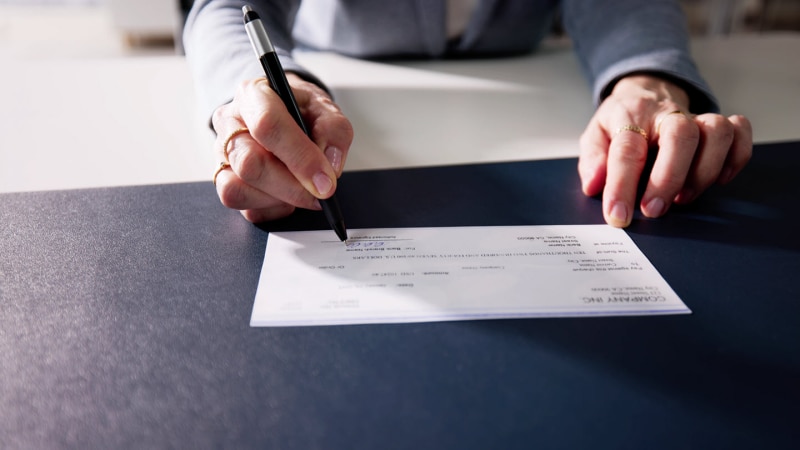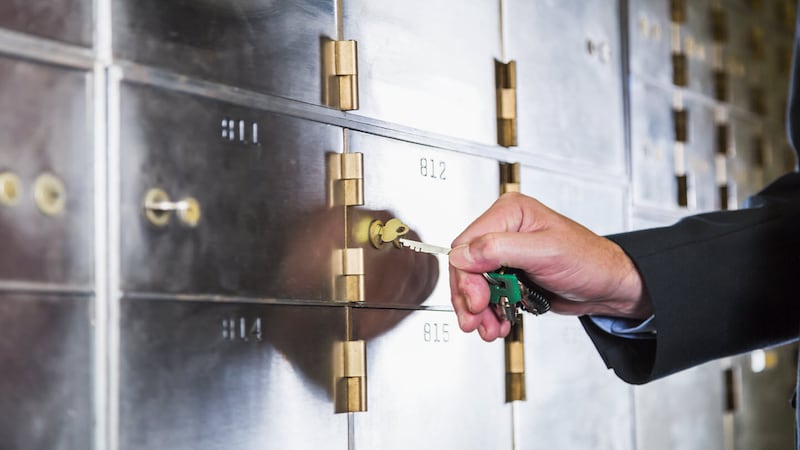What are postdated checks and how do they work?

Quick Insights
- Postdating a check involves writing a future date on the check, indicating when it can be cashed.
- Banks may still cash postdated checks before the written date, and the check writer could potentially face penalties or fees if there are insufficient funds.
- Some alternatives to postdating checks include money orders, automatic bill pay or arranging a payment plan.
If you want to make a payment but have concerns about cash flow, you might have considered postdating a check. People may choose to write postdated checks when they anticipate getting more funds soon. The postdated check is a way to align the timing of their payment with their expected cash flow. However, there are potential risks like the check recipient cashing the check before the date specified and overdraft fees.
In this article, we'll explore how postdated checks work and a few alternatives to this check writing practice.
What are postdated checks?
Postdating a check involves writing a future date on the check, indicating when it can be cashed. This practice is often used to manage cash flow or avoid overdraft fees when funds aren't immediately available. For instance, if you receive your paycheck at the same time each month, you could postdate a check to indicate that you want it to be cashed on or after that date.
Postdating a check is generally not recommended because of the potential risks. For instance, banks may still cash postdated checks before the written date, which can lead to overdrafting.
Reasons for postdating a check
There are several scenarios where postdating a check might be necessary or beneficial. For example:
- Managing cash flow: Postdating checks can help individuals or businesses delay payments until a specific date (usually when they know they’ll have sufficient funds to cover the check).
- Avoiding overdrafts: By postdating checks, you could potentially avoid overdrafting your account, as long as the check recipient doesn't cash it until the specified date.
- Ensuring timely payments: Postdating checks can be used to ensure that payments are made on time, such as rent or bill payments.
Potential consequences of early check cashing
If a postdated check is cashed before its date, the check writer may face penalties or fees if there are insufficient funds in their account. This can lead to overdraft fees or even account closure in some cases. To mitigate these risks, it may be helpful to communicate with the check recipient or explore alternative payment arrangements.
Alternatives to postdating checks
Some alternatives to postdating checks include:
- Set up automatic payments: Using an automatic payments feature allows for secure and timely payments, eliminating the need for postdated checks.
- Inquire about a payment plan: Service providers may allow you to make an alternative plan to pay a bill in full.
- Use a prepaid payment method: Money orders or cashier's checks won't bounce as they're prepaid, but you may need to pay a fee for these methods.
- Pay with a credit card: Using a credit card can help you manage cash flow. If you want to avoid interest charges, you will need to pay off the credit card balance by the due date.
Tips for managing your checking account
Effective management of your checking account may help with cash flow, potentially avoiding the need for postdated checks. This could include:
- Regularly monitoring your account balance and transaction history.
- Setting up alerts for low balances or large transactions.
- Creating a monthly budget to track your income and expenses.
- Setting up automatic payments for recurring bills to help ensure they're paid on time.
- Building a cash buffer to help you handle unexpected expenses.
- Connecting your checking account to a savings account or line of credit to avoid overdrafts.
Following these tips may help you make timely payments, avoid overdrafts and maintain a healthy financial foundation.
In summary
Postdating checks can be a helpful tool for managing cash flow and making sure payments are made on time. However, if the bank cashes the check before the date you specified, it could lead to overdraft fees and financial strain. That’s why this practice is generally not recommended.
You may want to consider weighing the benefits against the risks or explore alternative payment methods, including automatic payments, payment plans and cashier's checks.



